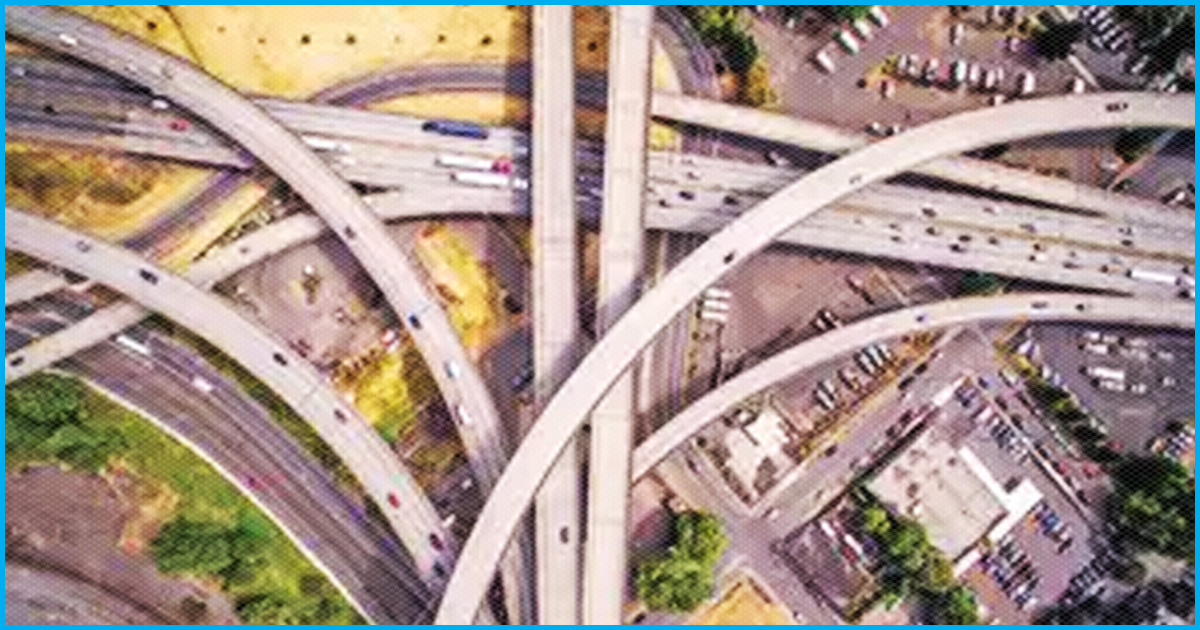The Kumaraswamy-led state government of Karnataka on November 29 gave the green signal to the contentious 102 km-long elevated corridor project. At an estimated cost of Rs 25,495 crore, the corridor is aimed at reducing the traffic woes of the city.
Karnataka Government Passes Elevated Corridor Project
Reportedly, the proposed corridor will connect north-south, east-west and central parts of the city and the work for the same will be taken up by Karnataka Road Development Corporation Limited (KRDCL). While this project was mooted 12 years ago, the report approved by the chief minister said that it will be completed in the next eight to ten years, reported The News Minute.
While the proposed plan may seem to address the tech city’s growing menace of private vehicles and traffic congestion, citizen rights activists, scholars and researchers have been opposing the construction of this mega corridor. The project was earlier shelved by the erstwhile Siddaramaiah government owing to the opposition. Activists today are of the opinion that the ambitious project is a waste of money and is not a sustainable solution to traffic congestion.

Feasibility Report
According to an Economic Times report, the proposed structure will not only change the city’s landscape but will also affect the socio-environmental scenario. The final Feasibility Report which was okayed by the Chief Minister says that for the purpose of the construction of the seven elevated corridors, the government needs to acquire 92 acres of land and pay compensation. This also includes 17 acres of private land that needs acquisition. Reportedly, the process of acquisition has already begun and compensations are yet to be handed out.

Feasibility Report
Other than that, the concrete construction would cause the loss of over 3,820 trees and pruning of over 2000 others – a modest estimation to say the least. Two years ago, Citizens For Bengaluru (CFB) had joined hands to stop the government from constructing the controversial steel flyover in the tech city. Thanks to their efforts, the government shelved the project.
Citizen activists raise concerns
This time too, the organisation has come forward to voice their concerns with regards to the elevated corridor project which will span the length and breadth of the city. Talking to The Logical Indian, Srinivas Alavilli, a member of CFB not only raised his concerns but also asked some very pertinent questions.
For citizen activists, sustainability remains the key contention here. He asks, “Is this the best use of money for the state government?” While the government has been pushing for the project in the guise that it will reduce traffic and make travel time faster, Alavilli feels that the move only shows government’s interest in paving the way for private vehicle owners.
He said, “The flyover will create what is known as induced traffic which will only make situations worse in the city.” This is true considering Bengaluru is already crawling with bumper-to-bumper traffic on a routine basis. According to recent state Transport Department data, the total number of cars and two-wheelers which were registered in the Bengaluru Metropolitan area till October 2018 stood at 14,94,375 and 54,15,116 respectively. Experts and activists collectively feel that the elevated corridor will accelerate the growth in the number of vehicles in the city, hence contributing to air pollution.
Push for public transport alternatives
A Sustainability Study was done on the project by Dr Ashish Verma, associate professor, Transportation Systems Engineer at Indian Institute of Science (IISc). It found that the elevated corridor will increase pollution and traffic congestion by 2030, reported Deccan Herald. He further noted that the elevated corridor will create 53 new bottlenecks leading to congestion.
Instead of the corridor, Dr Verma has pitched for a metro network line which, according to his study can bring down travel time by a maximum of 53.4% in 2030 as compared to 5.3% in case of the corridor.
In fact, members of CFB have also been pushing for a robust public transport system first and then a solution as mega as the present one. Alavilli said, “This city has never got a proper shot at a public transport system.” Talking about the high cost of metro and bus fares in the city, he said that there has been no support from the government in making these modes of transport more accessible to the ordinary public.
He said, “Many migrant labourers come to Bengaluru in search of jobs. These people are paid very less, however, the travel cost remains expensive which becomes a burden.” The group is planning a mass citizen protest and have been demanding for open dialogues as well as consultation with those who are affected by it.












